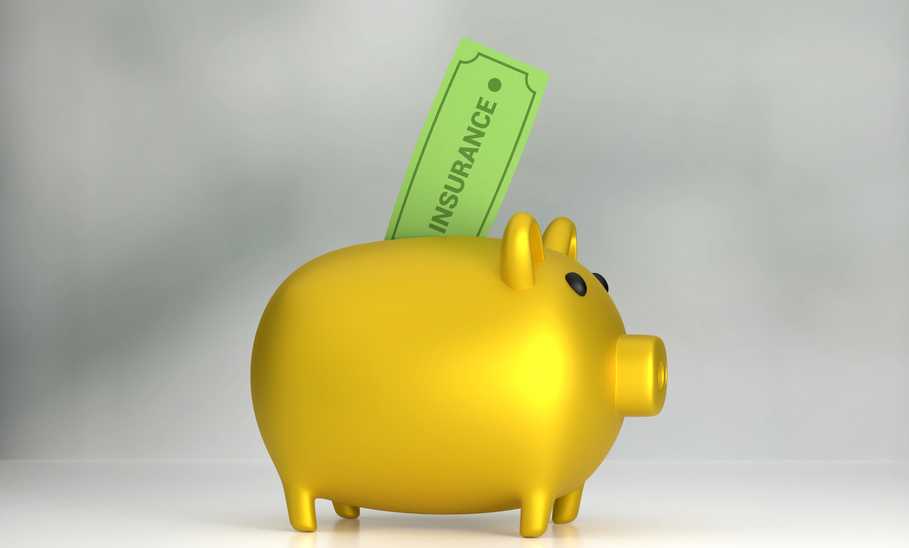Cash Value Life Insurance: Is It Right for You?


Our evaluations and opinions are not influenced by our advertising relationships, but we may earn a commission from our partners’ links. This content is created by TIME Stamped, under TIME’s direction and produced in accordance with TIME’s editorial guidelines and overseen by TIME’s editorial staff. Learn more about it.
Maybe you’re considering buying life insurance to give your loved ones some financial security after you die. It’s not a pleasant thing to think about, but at least you know your spouse or partner will be able to pay off the mortgage and your kids will be able to afford college.
Imagine if your life insurance also provided a financial benefit while you’re still living—a source of funds you could use to improve your home, start a business, or pay for emergencies. That’s the premise of cash value life insurance.
Cash value life insurance provides a death benefit to your beneficiaries, like term life insurance, as well as a savings component you can access while alive. Funded by a portion of your premium payments, the cash value grows over time through interest paid by the insurance company.
Compare cash value life insurance policies from multiple carriers with Everyday Life 's online insurance brokers.

With a cash value policy, you choose a monetary amount to get paid out when you die and specify who should be the beneficiaries of that money. This death benefit will be paid to them upon your death. Choosing a higher death benefit means paying more for the policy.
The insurance company charges you a premium, which you pay annually to keep the policy in force. Depending on the specific type of cash value policy you buy, the insurer may adjust the premium annually based on its business needs. If you die while the policy is in force, your beneficiaries can file a claim with the insurer for the death benefit.
Cash value life insurance is a type of permanent insurance. Unlike a term life policy, which remains in force for a set term of perhaps 10, 20, or 30 years, a cash value policy remains in force until your death. Exceptions are if you surrender (cancel) the policy or if the insurance company cancels it due to nonpayment of the premium.
The insurance company allocates your policy premium toward three things: your insurance coverage, your policy’s administrative fees, and your contribution to the policy’s cash value savings component.
Money allocated to the cash value component earns interest. Exactly how it earns that interest depends on the type of policy, which you can learn more about below. Over time, the policy provides a “nest egg” that you can utilize for almost any need. You can even increase your cash value contribution by making extra premium payments.
You can access the cash value in three ways.
You can make a withdrawal from the policy, much as you would from a regular bank account.
You can borrow against the cash value of the policy. As with any other loan, the lender (your insurance company) will expect repayment with interest. If you die with a loan balance, the insurance company will deduct that amount from the death benefit.
If you surrender (cancel) the policy, the insurance company will return the cash value to you minus any premiums owed, outstanding loans, and administrative fees. Of course, you’ll no longer have life insurance.
Some insurers may also allow you to use the cash value to pay your premium or increase the amount of your death benefit.
Cash value typically grows slowly. It could take a decade or longer before there’s enough cash in the policy to consider utilizing.
Why? Because during the first few years of a cash value policy, most of the premium goes toward insuring you and paying the insurance company’s administrative fees. Only a small portion funds the cash value.
Over the years, this balance shifts. But you may need to wait 10 to 15 years before there’s a cash value balance worth accessing. This is one of the caveats of buying a cash value policy and a reason to talk to a financial advisor about whether such a policy makes sense for your needs.
There are multiple types of cash value life insurance policies available. Some common examples are described below.
Whole life policies are the most common type of cash value insurance. They’re also typically the safest from an investment-risk perspective. Their cash value accumulates at a guaranteed, though modest, rate. Unlike some other types of life insurance, the insurer cannot modify the premium of whole life policies based on market conditions or changes to your health. The death benefit is fixed as well.
Companies such as Ethos Life have made getting whole life insurance easy. Their plan doesn’t require a medical exam and guarantees approval, even for people aged 66 to 85.
If you can tolerate a bit more risk, an indexed universal life insurance policy might be right for you. These policies offer cash value growth based on the performance of a stock index (such as the Dow Jones Industrial Average) that the insurer chooses. Your earnings may be capped or subject to a floor (minimum). While this can help minimize your losses in down years, it may also limit your earnings in years the market performs strongly.
The premium and death benefit of indexed universal life policies are typically adjustable. So, you can adjust your death benefit, which will also change the policy premium, as your needs change. The insurance company also can adjust your premium or charge fees based on its business needs.
You might consider variable universal life insurance if you want more say in how your cash value is invested. These policies invest your cash value in your choice of investment options. You get information about these options through a prospectus from the insurance company.
Your earnings may be subject to caps and floors, but these policies are typically considered a bit riskier than indexed universal life policies. They also tend to have higher administrative fees.
One of the most significant barriers to buying cash value life insurance is the cost. A recent review by USNews.com showed just how much more expensive cash value can be compared to term life.
For a 30-year-old male nonsmoker seeking $1 million in coverage:
That huge difference might put some life insurance hunters off opting for a cash value policy. The extra benefits the cash value policy offers may get sacrificed to save on monthly premium costs.
When shopping for life insurance, you owe it to yourself to understand the advantages and disadvantages of a cash value policy. Here are a few things to consider.
| Pros | Cons |
|---|---|
Living benefit: Money you can access while you’re alive | Cost: Cash value policies cost much more than term life policies |
Death benefit is tax-free and typically not subject to probate | May get better returns from other tax-advantaged investment vehicles, such as a 401(k) or Roth IRA |
Cash value grows tax-deferred |
A cash value policy may make the most sense to insurance buyers who have maxed out their 401(k) and IRA contributions and are looking for new ways to diversify their portfolio. It’s also worth considering for someone who needs life insurance permanently rather than for x amount of years.
Cash value policies are by no means perfect, though. Many people may be better served with a term life insurance policy, particularly considering the high cost of cash value life insurance.
A licensed insurance agent or independent financial advisor can help you explore your life insurance options and decide which kind of policy is right for you. If you prefer to handle your insurance shopping needs on your own, an online insurance broker such as Everyday Life can help you compare cash value life insurance policies from multiple carriers.
Cash value life insurance is great for some people, but less so for others. This type of policy may be suitable for someone who needs life insurance and is looking to diversify their investment portfolio. Those simply needing life insurance might be best served with a term life policy, which offers no cash value component.
No, term life insurance policies do not have a cash value component.
If you die with a cash value balance, that balance is typically kept by the insurance company. Your beneficiaries receive the policy’s death benefit.
Cash value life insurance offers multiple tax advantages. First, the death benefit is not included with your beneficiaries’ gross income, so they don’t have to pay taxes on it. Second, the growth of the cash value is tax-deferred, meaning you aren’t taxed on that money unless you access it with a withdrawal or through the surrender of the policy. Finally, any money you borrow or withdraw from a cash value policy is untaxed up to the “cost basis.” This means you’ll only be taxed for money the policy earns through investments and interest payments.
Consult with a certified tax preparer to fully understand your responsibilities.
You’ll receive the cash value minus any premium owed, outstanding loans, and administrative fees. You’ll also be canceling your coverage, so your beneficiaries won’t receive a death benefit upon your passing.
The information presented here is created by TIME Stamped and overseen by TIME editorial staff. To learn more, see our About Us page.



